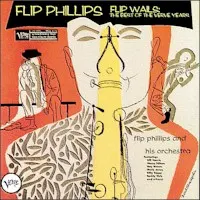Styles: Straight-ahead/Mainstream
Year: 2001
File: MP3@320K/s
Time: 67:28
Size: 154,8 MB
Art: Front
( 6:59) 1. Teo
( 5:05) 2. Grace-Ann
( 9:42) 3. You Must Believe in Spring
( 6:37) 4. Blues for Paris
( 6:13) 5. The Charm
( 5:09) 6. Consistent-Seay
( 8:28) 7. Red Alert
( 8:45) 8. Essence
(10:26) 9. Preston's Theme
Year: 2001
File: MP3@320K/s
Time: 67:28
Size: 154,8 MB
Art: Front
( 6:59) 1. Teo
( 5:05) 2. Grace-Ann
( 9:42) 3. You Must Believe in Spring
( 6:37) 4. Blues for Paris
( 6:13) 5. The Charm
( 5:09) 6. Consistent-Seay
( 8:28) 7. Red Alert
( 8:45) 8. Essence
(10:26) 9. Preston's Theme
Change is a necessary factor in the musical development of jazz musicians and listeners. It's the fuel for the creative process that expands the boundaries for this thing we call jazz music. Clarence Penn's 1997 debut recording Penn's Landing, won him critical acclaim in many jazz circles. The essence of that recording highlighted an immensely talented drummer who displayed deep skills in musical composition,arrangement, and musicianship. Penn's group for that session featured a piano-less quartet that was in many cases more creative and tight than most typical jazz ensemble with keys. The piano was not missed at all. In fact, it was a refreshing change that in many aspects allowed more freedom. The extremely talented musicians for that session were trumpeter John Swana, Ron Blake on sax, and Rodney Whitaker on bass. The recording featured a heavy swing and post bop orientation with tight arrangements that transcended the typical jazz quartet. Mr. Penn has been changing in one form or another throughout his musical career, whether playing with the Detroit Civic Symphony, to touring and recording with jazz statesmen such as Makoto Ozone, Michael Brecker, or Dave Douglas.
For the new recording, Penn expresses himself even further with the same musicians on his debut, but with a lighter feel. This is jazz that can't be easily classified into a particular category. There are various traces of many influences e.g. Monk, Coltrane, Elvin Jones, and Mingus, but Penn propels his own voice cloud and clear. Penn also added new flavor with the addition of notable European guitarist Jesse Van Ruller whose hollow body expertise sparked new texture to the already talented group. Selections such as Monk's timeless "Teo" are given Penn's personal stamp as well as more mellow selections like the dreamy cut, "The Charm". The musicians are all up to the challenge of change. Swana on trumpet is as smooth and free as ever and contributes one of the session's most aggressive selections, "Red Alert". Rodney Whitaker is one of today's top bassists and shines thought out the recording giving choice solos as well. Ron Blake is a killer saxophonist who displays great depth and soul throughout the recording. Jesse Van Ruller, a Thelonious Monk Competition guitar winner; swings, grooves, and flows throughout the session with skill and talent which shows why he won the prestigious award. Clarence Penn shows exceptional skills that are still evolving. The evidence of Penn's talent is displayed throughout the recording with great aplomb. Intricate solos, exquisite rhythms, percussive exploits, and tender brush strokes showcase the multifaceted Penn. The listener is treated to a musician who adapts to change in a creative way. It will be interesting to see what changes are in store from the ever changing skills of Clarence Penn. Recommended. ~ Mark F.Turner http://www.allaboutjazz.com/play-penn-clarence-penn-criss-cross-review-by-mark-f-turner.php
Personnel: Clarence Penn (drums); Ron Blake (tenor saxophone); John Swana (trumpet); Jesse Van Ruller (guitar); Rodney Whitaker (bass).
Play-Penn





















